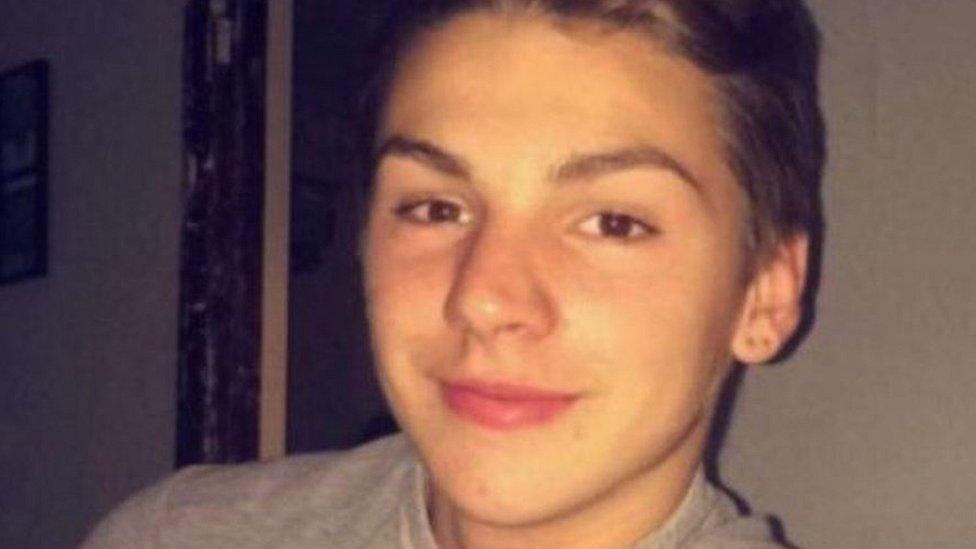Liam Taylor: Knife-crime murder that ripped a family apart
- Published
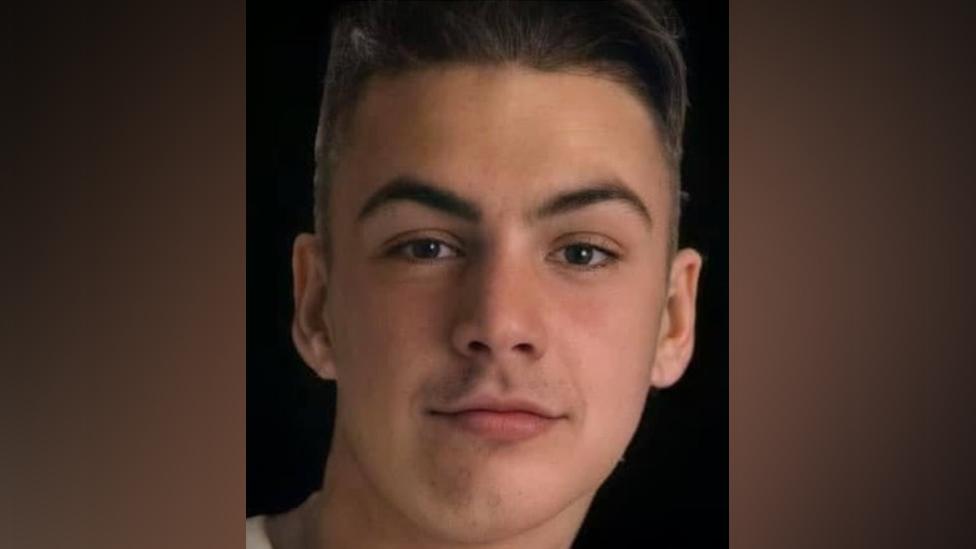
Liam Taylor died after being stabbed in a village near Chelmsford in January 2020
"They wake up every morning and they breathe. They breathe but they're not surviving - they're not really living."
This is how Julie Taylor describes the devastating effect of her grandson's murder.
Three years on from the senseless killing, Mrs Taylor talks because the rest of the family is still too distressed.
Liam Taylor was stabbed to death outside a pub in Writtle, near Chelmsford, on 31 January 2020. He was 19.
Speaking on the anniversary of her grandson's death, Mrs Taylor, 57, says the murder has ripped the family apart.
"I loved Liam dearly and his death has left a huge hole in our hearts. That's why we have to keep his memory alive.
"Tomorrow it will be someone else - and that's the sad thing."
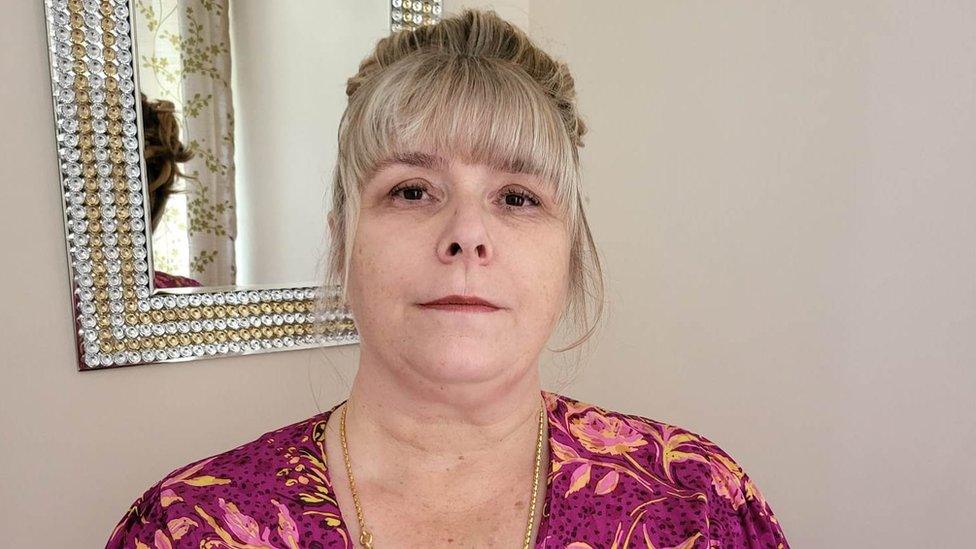
"It rips your heart out to know we will never see him again - at first you don't realise that, as daft as it sounds," says Julie Taylor
Mrs Taylor says Liam was known as a "cheeky chappy" as a child, and the family is coping with his loss in its own way.
She says Liam's mother, who does not wish to be named, and the family, visited his body in the chapel of rest for six weeks before his funeral.
"His mum would kiss him every night but he couldn't answer back. It was like he hadn't left," she says.
"Liam's mum said she couldn't face the funeral - we refer to it as 'the special day' but I told her if she didn't go, she'd regret it forever, so she went."
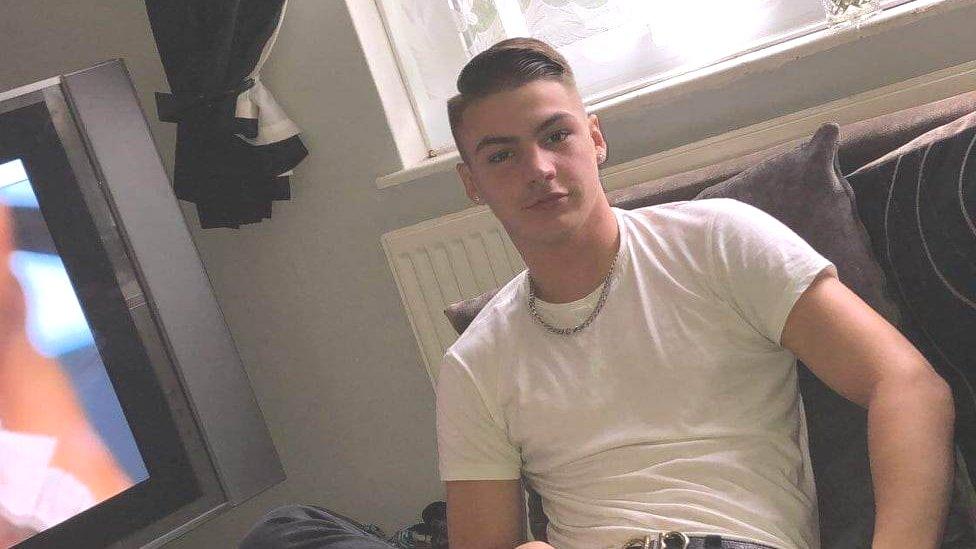
Liam, who was known as "Fish" was getting his life back on track, his grandmother says
Mrs Taylor says her daughter is "totally heartbroken", while one of his his siblings has also struggled to cope.
"She says the other half of her is gone. It's devastating to watch," adds Mrs Taylor.
"Liam's death is ripping this family apart. It's destroyed them. It's heartbreaking."
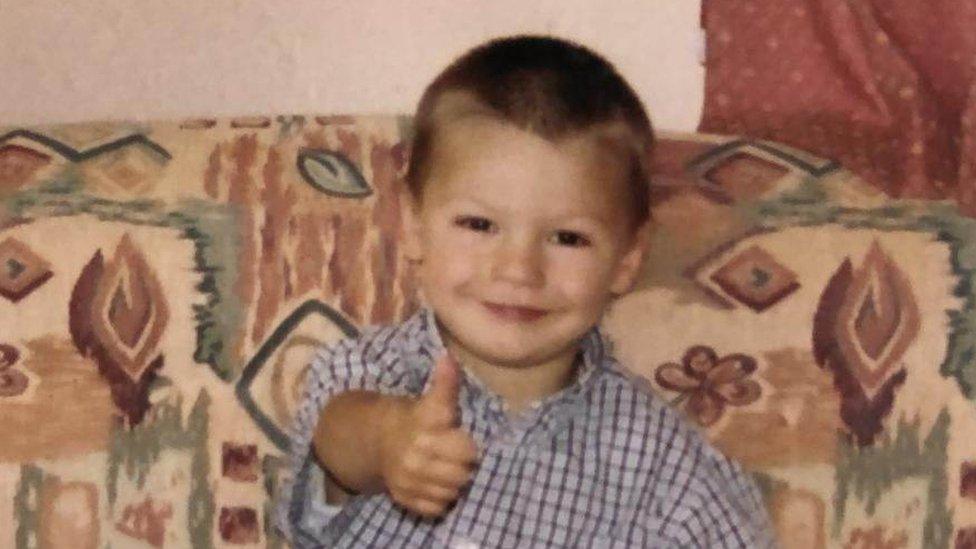
"The year before he was killed, Fish's life was getting on track. He'd started a roofing job and was saving up for a car," his grandmother says
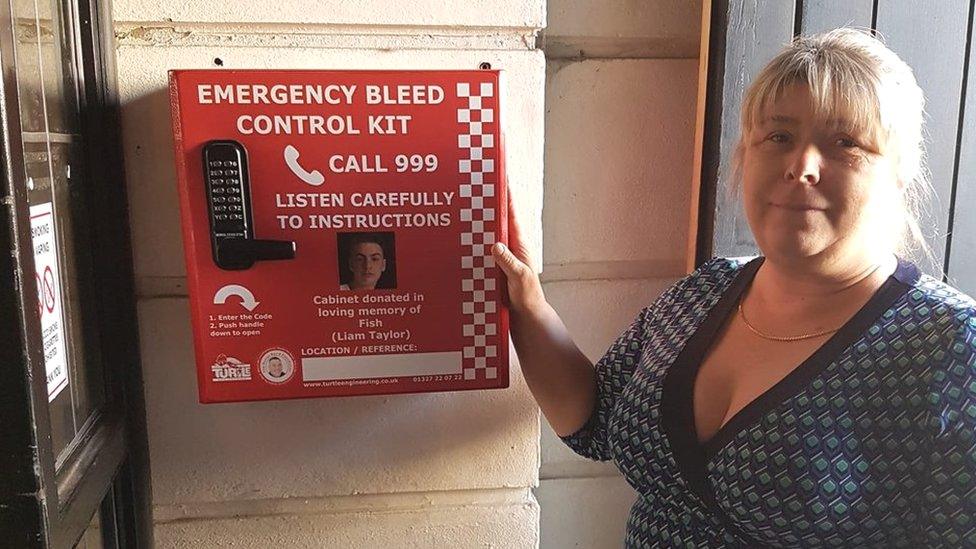
Julie Taylor with one of the bleed control kits, installed in memory of her grandson
During his murderers' trial, police said the stabbings of Liam - and his friend who was injured - were thought to be in retaliation to an incident earlier that evening, but neither Liam nor his friend had been involved in the altercation.
Mrs Taylor is urging youngsters and families to think twice before carrying a blade in public.
"Knife crime is not getting better, it's getting worse. Parents need to know what their kids do to other people when they take a knife," she says.
"Kids need to understand the heartache this causes. In this case, they've not just killed Liam, they've killed his mum and his sibling."

Since August 2021, Mrs Taylor has made it her "life's work" to fundraise for life-saving first aid kits in Liam's memory.
Public-access bleed control kits contain items which could potentially save a life including a tourniquet, bandages and a foil blanket.
Mrs Taylor and friends have raised more than £25,000 and bleed kits have been distributed to pubs, clubs and other venues across Essex and further afield.
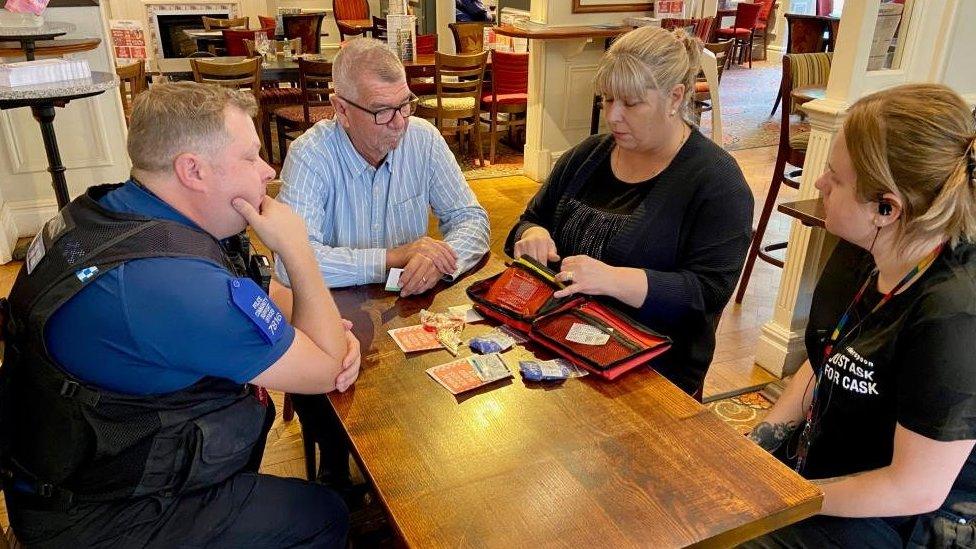
Mrs Taylor often goes out with police officers and explains to people how to use the bleed kits
The new kits have already helped to save a life by providing vital life-saving treatment in the moments after a stabbing.
"We have saved one lad - a bouncer at a pub.
"His throat was cut and the landlord had one of our bleed kits. They'd only had my five minutes of training but that saved him.
"When I found out he'd lived, it was just joy. He had survived."
Her mission keeps her going, she says.
"Some days I wake up and think, 'why do I bother?' but helping change one thing - one life - is better than doing nothing."
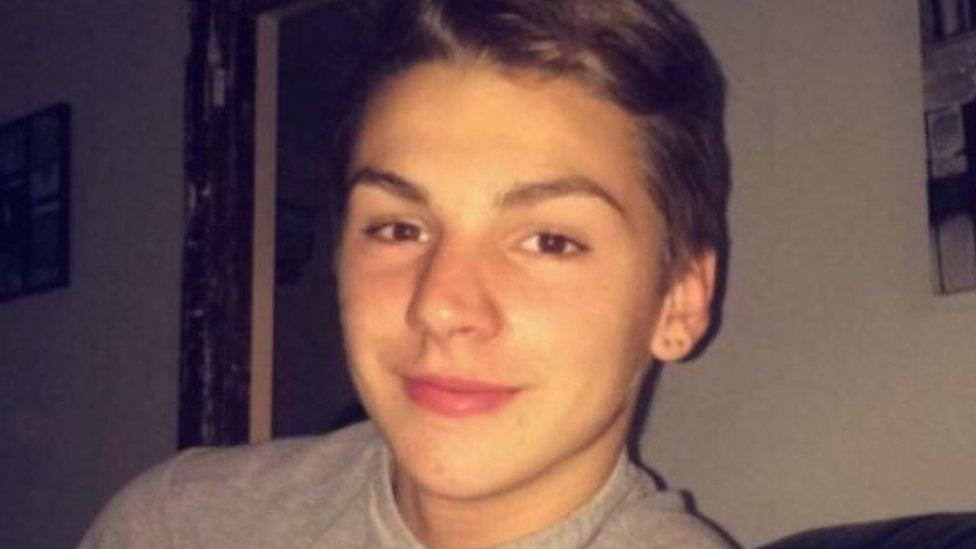
Liam's name will live on through the first aid kits, his grandmother says
Mrs Taylor works part-time in a community cafe, but says: "I go out in the evenings with police and cadets, I speak to children in schools. I am campaigning non-stop.
"It's like an obsession but this obsession makes me stronger. You just have to save other families from going through this.
"I do what I do just to stop myself breaking down."
Her heartfelt campaign has the support of Essex Police.
Ch Insp Ian Hughes says: "Having these kits in the community available to use in the event of a catastrophic bleed is invaluable. A major trauma could happen anywhere, but the kit could make all the difference whilst awaiting medical intervention."
"Essex Police is committed to reducing knife crime across the county and we are doing all we can to take knives off the streets and prevent harm to our community."

'Grieving - there is no normal'
"The death of a someone you know can be devastating and life shattering," says Andy Langford, clinical director at charity Cruse Bereavement Support.
"It is important to remember that everyone grieves differently, there is no normal when it comes to grief.
"It can be very comforting to think that grief is a predictable journey and that at some point we will reach the final stage and be able to move on with our lives."
Ellen Milazzo, head of Victim Support's National Homicide Service says: "In the immediate aftermath, the shock and trauma that people experience makes your brain work differently, meaning it can be hard to absorb and process information. People are often left in a state of sheer disbelief.
"It's important to recognise that this is a life-changing experience. People do learn to live with their terrible loss and forge a 'new normal' - but this can take a very long time and each person will manage this differently."

If you, or someone you know, have been affected by bereavement, the BBC Action Line has details of organisations that may be able to help

Find BBC News: East of England on Facebook, external, Instagram, external and Twitter, external. If you have a story suggestion email eastofenglandnews@bbc.co.uk, external
Related topics
- Published2 December 2022
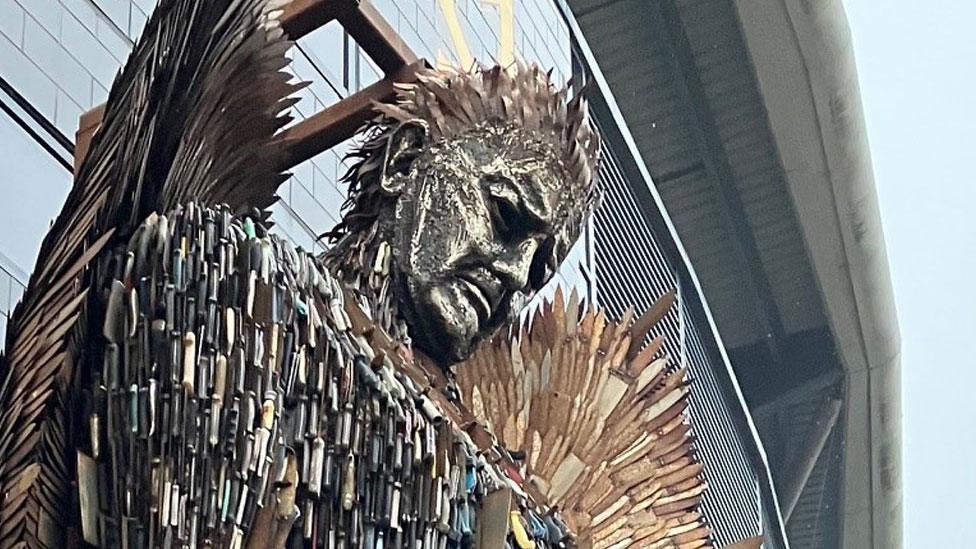
- Published30 September 2022

- Published16 April 2022
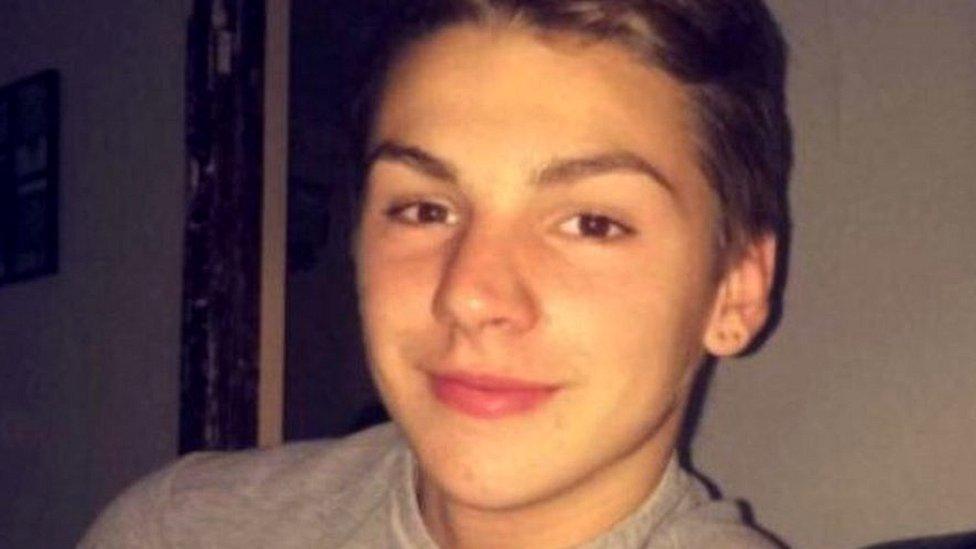
- Published31 August 2021
